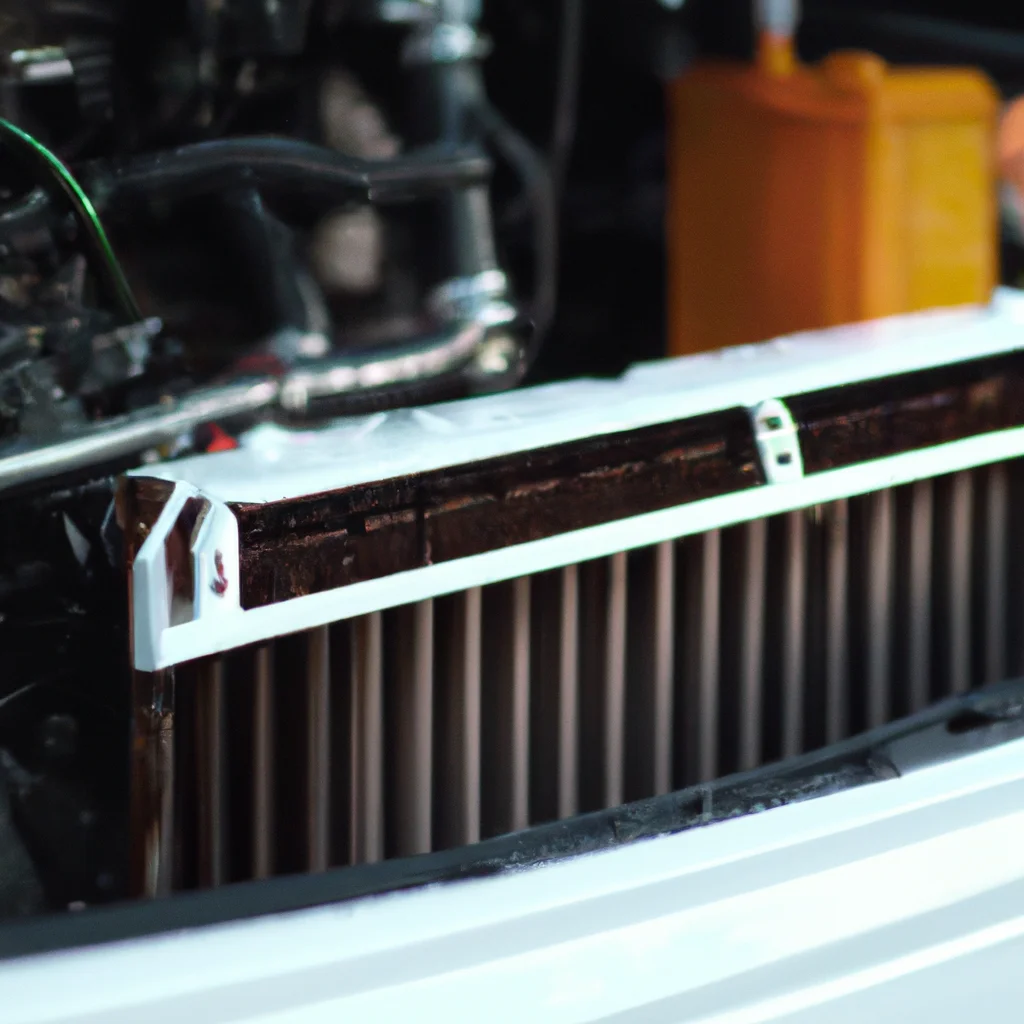How does a car’s cooling system work?


How does a car's cooling system work?
A car cooling system is a crucial component of any vehicle, ensuring that the engine stays at optimal temperatures, and preventing it from overheating. The car cooling system works by circulating coolant through the engine, which absorbs heat and transfers it to the radiator, where it is cooled by the air flowing through it. But how does a car’s cooling system work? In this article, we will explore the various components of a car’s cooling system and how they work together to keep the engine cool.
The Car Engine Cooling System
All car engines generate heat as they run. This heat must be dissipated to prevent the engine from overheating, which can cause significant damage. The car engine cooling system is responsible for regulating the engine’s temperature and ensuring that it stays within optimal operating range.
Car Radiator
One of the critical components of a car’s cooling system is the radiator. The radiator is a heat exchanger that is responsible for transferring heat from the coolant to the air. The radiator is usually located at the front of the vehicle, where it can receive a steady flow of air as the car moves. The radiator is made up of a series of tubes that allow the coolant to flow through. These tubes are surrounded by thin fins that increase the surface area of the radiator, allowing more heat to be transferred to the air.
Car Water Pump
The car water pump is responsible for circulating the coolant through the engine and the radiator. The water pump is usually driven by a belt that is connected to the engine’s crankshaft. As the engine runs, the water pump spins, which causes the coolant to circulate through the engine and the radiator.
Car Thermostat
The car thermostat is a valve that regulates the flow of coolant through the engine and the radiator. The thermostat is usually located in the engine block, where it can monitor the engine’s temperature. When the engine is cold, the thermostat remains closed, preventing the coolant from flowing through the radiator. This allows the engine to warm up quickly. Once the engine reaches the optimal operating temperature, the thermostat opens, allowing the coolant to flow through the radiator and cool the engine.
Car Overheating
Car overheating can occur due to a variety of reasons, such as a malfunctioning water pump, a clogged radiator, a faulty thermostat, or low coolant levels. When a car overheats, it can cause significant engine damage, resulting in costly repairs. It is crucial to maintain the car’s cooling system and ensure that it is functioning correctly to prevent overheating.
In conclusion, a car’s cooling system is a vital component of any vehicle. It ensures that the engine stays at optimal temperatures and prevents it from overheating. The car cooling system works by circulating coolant through the engine, which absorbs heat and transfers it to the radiator, where it is cooled by the air flowing through it. The car radiator, car water pump, and car thermostat are all essential components of the car cooling system and work together to regulate the engine’s temperature. Regular maintenance of the cooling system is crucial to prevent car overheating and costly engine damage.
Recent Posts
How do I create an engaging and informative online quiz or assessment?
Creating an engaging and informative online quiz or assessment can be a powerful tool for… Read More
What are the most effective methods for managing and reducing work-related stress in the hospitality industry?
Work-related stress is a common issue in the hospitality industry, where employees often face long… Read More
How can I improve my assertiveness and communication skills in a leadership position?
In a leadership position, assertiveness and effective communication skills are crucial for success. Being able… Read More
What are the key elements of a successful employee recognition and rewards program?
Employee recognition and rewards programs play a crucial role in motivating and engaging employees, as… Read More
How do I effectively manage and respond to customer feedback and reviews?
Customer feedback and online reviews play a crucial role in shaping a company's reputation and… Read More
What are the best strategies for effective time management as a stay-at-home parent?
Effective time management is crucial for stay-at-home parents who juggle multiple responsibilities on a daily… Read More